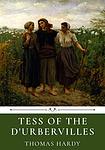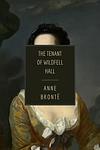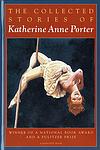The Greatest "Social & Cultural Fiction, Gothic" Books of All Time
Click to learn how this list is calculated.
This list represents a comprehensive and trusted collection of the greatest books. Developed through a specialized algorithm, it brings together 300 'best of' book lists to form a definitive guide to the world's most acclaimed books. For those interested in how these books are chosen, additional details can be found on the rankings page.
Genres
Social & Cultural Fiction is a literary category that encompasses novels and stories that delve into the complexities of society and culture, exploring themes such as class, race, gender, and identity within specific social contexts. These narratives often provide a lens through which readers can examine the intricacies of human relationships and the impact of cultural norms and societal structures on individuals and communities. By offering a fictional yet reflective portrayal of real-world social dynamics, this genre invites readers to gain a deeper understanding of the diverse experiences that shape our world. Authors in this category frequently use their characters and settings to comment on contemporary issues, challenge prevailing ideologies, and provoke thought about the possibility of social change, making Social & Cultural Fiction a powerful tool for empathy and a mirror for the ever-evolving human condition.
Gothic literature is a genre that combines elements of horror, death, and romance, often set against dark, brooding landscapes and decaying architecture, such as haunted castles or monasteries. Originating in the late 18th century, it delves into the human psyche, exploring themes of madness, the supernatural, and the sublime. Classic Gothic novels often feature a sense of dread and the unknown, with characters confronting their deepest fears and societal taboos. The atmosphere is typically heavy with mystery and melancholy, and the narrative may include ghosts, monsters, or otherworldly beings. Gothic fiction seeks to evoke a visceral emotional response, such as fear or awe, and often contains a critical look at the time's social, cultural, and moral attitudes. Notable authors in this genre include Ann Radcliffe, Mary Shelley, Edgar Allan Poe, and Bram Stoker, whose works have left an indelible mark on literature and continue to influence modern horror and suspense.
Countries
Date Range
Reading Statistics
Click the button below to see how many of these books you've read!
Download
If you're interested in downloading this list as a CSV file for use in a spreadsheet application, you can easily do so by clicking the button below. Please note that to ensure a manageable file size and faster download, the CSV will include details for only the first 500 books.
Download-
1. Tess of the d'Urbervilles by Thomas Hardy
This is a tragic tale of a young woman named Tess who comes from a poor family in rural England. Tess is sent to work for a wealthy family, where she is seduced by a man who abandons her after she becomes pregnant. The baby dies, and Tess is ostracized by her community. She falls in love with a kind man, but when she confesses her past, he rejects her. Desperate and heartbroken, Tess murders her former seducer and is eventually captured and executed. The novel explores themes of fate, injustice, and the oppressive sexual morals of its time.
-
2. Wide Sargasso Sea by Jean Rhys
This novel is a postcolonial prequel to "Jane Eyre," exploring the life of Mr. Rochester's mad wife, Bertha. Set in Jamaica during the 1830s, it follows the story of Antoinette Cosway, a white Creole heiress, from her youth in the Caribbean to her unhappy marriage and move to England. Caught in a society that both rejects and exoticizes her, Antoinette is ultimately driven into madness by her oppressive husband and the haunting legacy of colonialism.
-
3. Jude the Obscure by Thomas Hardy
This novel tells the story of Jude Fawley, a working-class young man who dreams of becoming a scholar. The traditional class structure in 19th-century England prevents him from realizing his dream and his only solace is his love for his cousin, Sue Bridehead. Their scandalous relationship and the tragic events that follow form the heart of the narrative, which explores themes of love, class, religion, and morality.
-
4. The House of the Seven Gables by Nathaniel Hawthorne
This novel revolves around the cursed Pyncheon family, who live in a gloomy New England mansion, cursed due to the actions of their ancestor who had an innocent man hanged as a witch to seize his property. The story explores themes of guilt, retribution, and atonement, and the narrative is interspersed with the author's philosophical musings. The present-day Pyncheons include an old maid, a daguerreotypist, and their elderly, reclusive cousin who returns to the house after a mysterious absence of many years.
-
5. The Tenant of Wildfell Hall by Anne Brontë
"The Tenant of Wildfell Hall" is a novel about a mysterious woman who moves into the dilapidated Wildfell Hall with her young son. As the story unfolds, it is revealed that she is running from an abusive, alcoholic husband and has taken on a new identity to protect her child. The narrative explores themes of gender roles, morality, and the societal constraints of the Victorian age, as well as the consequences of alcoholism and debauchery.
-
6. Flowers in the Attic by V. C. Andrews
The novel focuses on four siblings who, after the tragic death of their father, are locked away in the attic of their cruel grandmother's mansion as their mother tries to inherit the family fortune. The children endure years of abuse and neglect, and as their mother's visits become less frequent, they must rely on each other for survival. Over time, they form a deeply complex and troubling relationship, leading to a shocking and devastating climax.
-
7. The Collected Stories of Katherine Anne Porter by Katherine Anne Porter
This collection of stories showcases the author's talent for creating vivid, richly detailed characters and settings. The stories are diverse in theme and setting, ranging from the rural American South to post-World War I Europe. Through her complex characters and nuanced storytelling, the author explores themes of love, loss, and the human struggle for personal freedom and authenticity. The collection includes both her short stories and her longer, more complex novellas, providing a comprehensive overview of her literary achievements.
Reading Statistics
Click the button below to see how many of these books you've read!
Download
If you're interested in downloading this list as a CSV file for use in a spreadsheet application, you can easily do so by clicking the button below. Please note that to ensure a manageable file size and faster download, the CSV will include details for only the first 500 books.
Download





